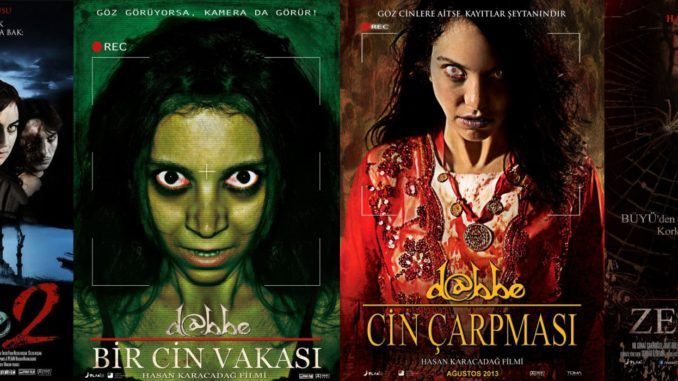
“Sound and silence are simultaneously the most valuable companions of fear.” — Hasan Karacadag
Having recently plunged into the world of Turkish horror with the Siccin franchise, I figured I’d continue with the other major tentpole of horror there, Dabbe. Or D@bbe, as it’s commonly stylized, because – at least in the earlier installments – the concept is more or less focused on the Internet being a demonic entity, a portent of the end of the world. [If you’ve spent any time on /r/politics, you are probably nodding in agreement] Compared to Siccin, they may be slightly better known outside of Turkey, due to the presence, albeit only of certain entries, on Netflix – an apparent TikTok watch challenge did no harm either. Like Siccin, and in contrast to most Western horror franchises, it likely helps that they work well enough as stand-alone entries: little previous knowledge is assumed or required.
It probably comes down to personal choice as to which you prefer, a little like whether you enjoy the Friday the 13th or Nightmare on Elm St franchise more. I would say Dabbe are probably lower in budget (the first film cost $150,000, taking in two million dollars), and less polished technically. However, that sometimes works for them. While they still generally have some religious undertones, it feels a little less emphatic than in Siccin, and you don’t necessarily need to buy into that to get the impact. The franchise’s creator, Hasan Karacadag, may be more secular, based on statements like “What we call science is a new religion for me, and whatever is new is always in a fight with the old.”
“I personally think that the internet is going to be an important factor in the annihilation of humankind.” — Hasan Karacadag
This may also be a result of him living and working in Japan for eight years. He originally went there to study medicine, but ended up learning film under Chisui Takigawa, who directed the TV movie Ring, three years before Hideo Nakata’s version. “If I had never gone there, I wouldn’t have made a horror movie,” says Karacadag. In particular, he says the time spent there taught him the value of building off common ground. “The biggest contribution I received from Japan was the idea of looking at your own people. Don’t look at anything else. If you are looking for a topic, look at your own people. Your own culture + your own history = your cinema… I looked at my own people and decided to make a horror movie.”
Another elements in common with Siccin is the strong emphasis on the audio elements. Said Karacadag, “Sometimes I use 40 channels of sound: strange languages, undefined tones that you have never heard, the mysterious sounds from the bottom of the ocean, the incredible, mystical effect of Arabic. I like to use all of these like a magic melody.” At the time, in 2015, he was just coming off production of Magi, whose cast included Michael Madsen and Steven Baldwin. [I’ll be reviewing that one separately, as it’s not part of the Dabbe universe] However, he does not appear to have made anything since Magi: both Vampiria and Dabbe 7 are listed on the IMDb as “Completed,” but the last updates on each are more than four years ago, and his Twitter account has been silent since 2017. Maybe the djinn finally got to him…
Below are reviews of all six entries in the Dabbe franchise to date.
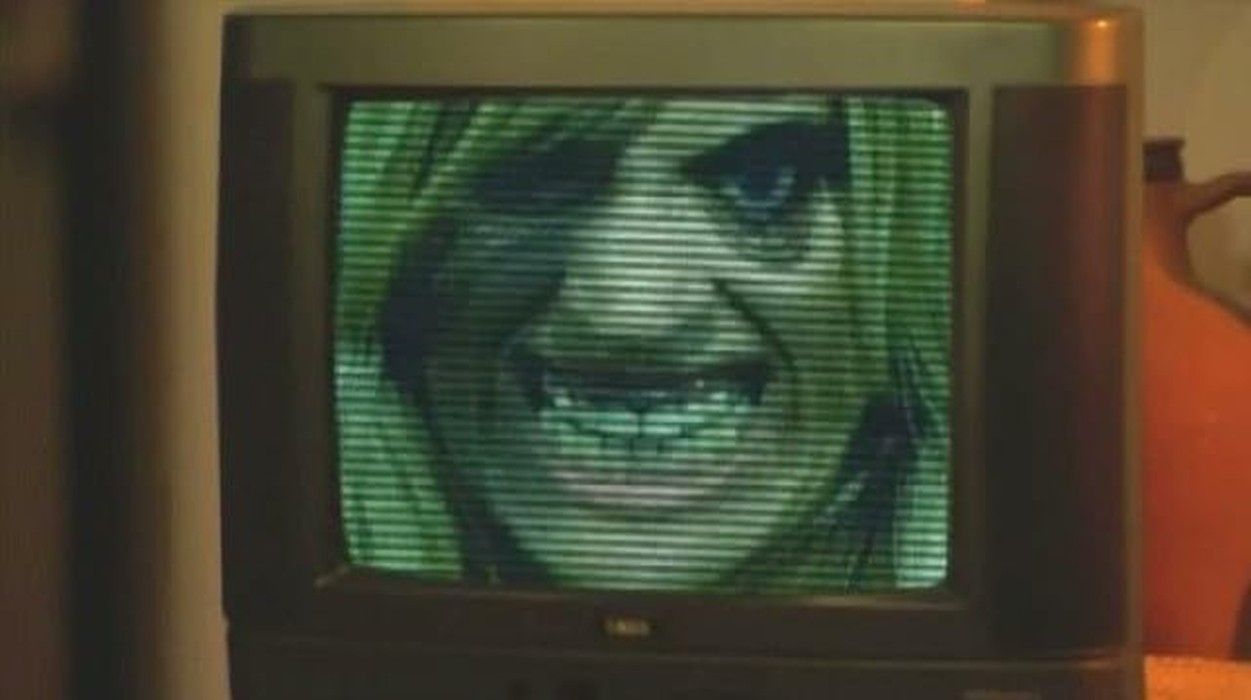
Dabbe (2006)
Rating: C
Dir: Hasan Karacadag
Star: Ümit Acar, Ebru Aykaç, Serdar Özer, Serhat Yigit
a.k.a. D@bbe
This is more than a little rough around the edges, not least in the area of plotting. It’s never exactly clear what’s going on. Indeed, I’d have been happy to settle for somewhat clear, but that might still be a stretch. At the top level, it’s the concept that the Internet is being hijacked by a demonic entity, possibly heralding the End Times. Or maybe the Internet is a demonic entity? In either case, it seems to be responsible for a global wave of suicides, which began in Japan, went through America, and is now beginning to reach Turkey. Its first victim is Tarik (Yigit), who impales his own head on a carving knife. #TikTokChallenge
His friends, in particular Hande (Aykaç), are concerned. Tarik had been acting increasingly oddly in the days before his demise, and when Hande recovers the camera she had lent him, she finds unsettling photos on it. Meanwhile police commissioner Suleyman (Acar) is investigating the deaths – which as he points out, doesn’t make sense because he’s a homicide detective. Both he and Hande start to experience weird visions, like Jacob’s Ladder on crack. That’s getting off lightly compared to others in their circle, who join Tarik in the morgue at an alarming rate. After Hande decodes the “388@0” message left by Tarik – taking a good hour than the viewer, in all likelihood – she realizes the only hope might be a religious nutter, who may know what’s going on.
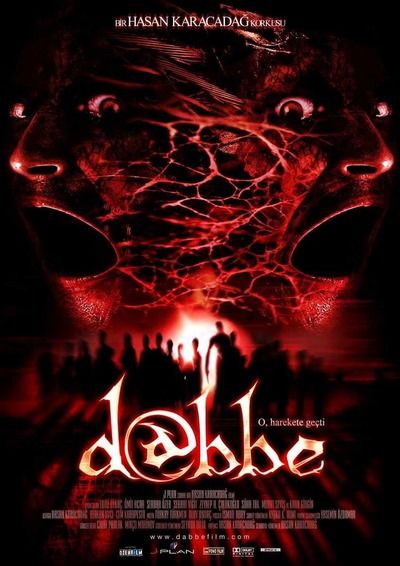 It’s a low-fi approach – it looks shot on video, and not particularly high-def video. But this mirrors a retro feel, filled with dial-up noises and Yahoo log-in screens, and there are some strong sequences here. The best might be the one where we discover the full extent of Suleyman’s past trauma concerning his wife. Another is when he and Hande visit the nutter, only to discover he has been pushed entirely over the edge by what he knows, in an almost Lovecraftian way. There’s no denying Karacadag’s eye for imagery, such as the TV broadcast, discussing the epidemic of suicides, where the reporter’s face increasingly morphs into something considerably more demonic (top). Just a shame the same care is not applied to the narrative.
It’s a low-fi approach – it looks shot on video, and not particularly high-def video. But this mirrors a retro feel, filled with dial-up noises and Yahoo log-in screens, and there are some strong sequences here. The best might be the one where we discover the full extent of Suleyman’s past trauma concerning his wife. Another is when he and Hande visit the nutter, only to discover he has been pushed entirely over the edge by what he knows, in an almost Lovecraftian way. There’s no denying Karacadag’s eye for imagery, such as the TV broadcast, discussing the epidemic of suicides, where the reporter’s face increasingly morphs into something considerably more demonic (top). Just a shame the same care is not applied to the narrative.
It’s a decent concept, especially compared to some other attempts from the noughties to leverage the Internet for horror purposes, e.g. feardotcom. But beyond fulfilling Koranic prophecy, we never learn the Dabbe’s purpose. Maybe it’s clearer to the local audience, better acquainted with the religious text? That would be the most charitable explanation, and might be too generous given the other issues, such as a reliance on exposition dumps like television interviews, instead of the story flowing naturally. There’s a lack of progression as well; at the end, you’re just a few more deaths further on, without significant other development to show for your hour and fifty minutes. The planned trilogy feels like it’s going to stretch its material perilously thin.
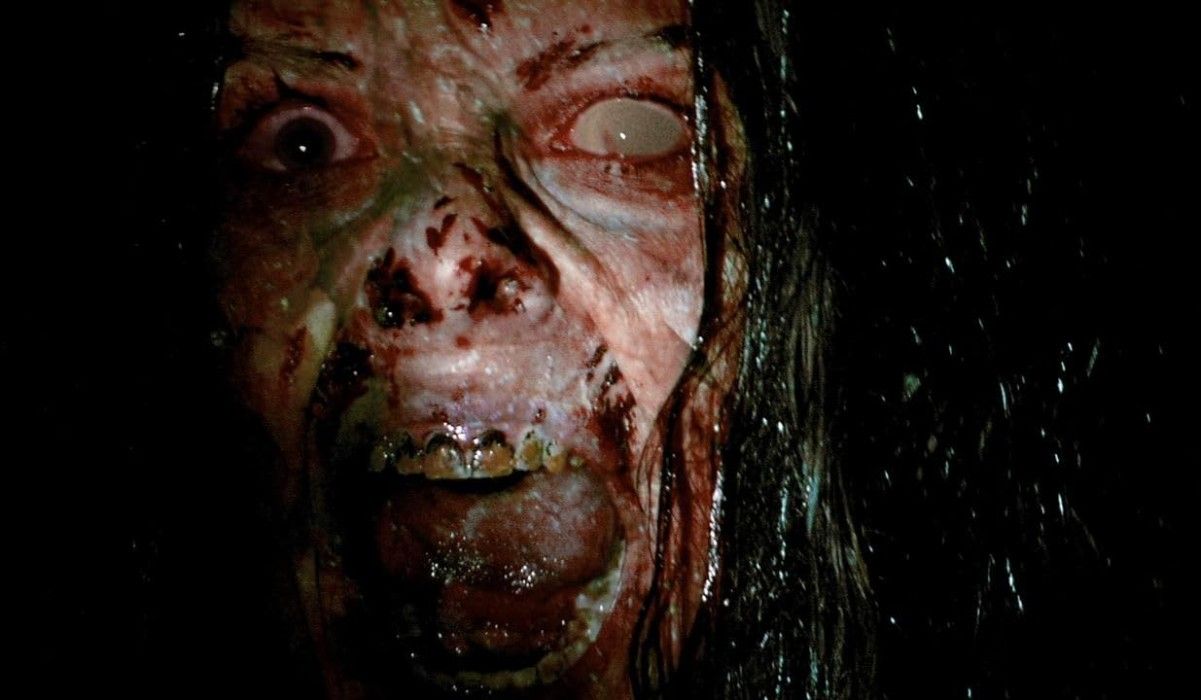
Dabbe 2 (2009)
Rating: B
Dir: Hasan Karacadag
Star: Sefa Zengin, Incinur Dasdemir, Deniz Olgac, Muharrem Dalfidan
a.k.a. D@bbe 2
At a 3.0 rating on the IMDb, this is easily the lowest scored entry. Yet I really liked it, and I think one of the reasons why, is perhaps also why it scores so badly; the United States ratings are notably higher than the Turkish ones. It has to overcome some technical difficulties too. The only print apparently out there has sporadic, poorly translated English subs, and there’s a fifteen-minute chunk where the audio is a looped section from earlier in the movie. That it still reached a B grade is testament to… something, especially since the cast is barely a handful in number, and almost all of the film takes place in a single house.
It begins with Ilhan (Zengin) having computer problems, which suggest his PC is infected by something more malevolent than a virus. He then goes off to pick up daughter Funda (Olgac) and her friends, leaving wife Melis (Dasdemir) alone in the house. She starts to experience increasingly weird sights sand sounds – this is the section where the audio if out of sync, but there’s not much dialogue, and it almost helped the off-kilter atmosphere. By the time Ilhan and Funda return, Melis is near-catatonic on the floor. Things are about to get much, much worse. As in, full-on religious apocalypse; trumpets of doom, demons roaming the streets of Istanbul, thick black smoke with evil intentions, and so on.
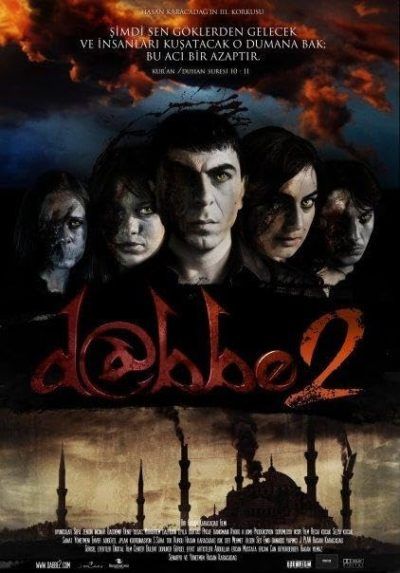 This is all depicted on a budget of not very much. The luridly low-tech approach, again, almost enhances the nightmarish feel, along with TV broadcasts that have the fragmented and chaotic quality I suspect they would have, in the event of such an apocalypse taking place. However – and I think this is where I and the IMDb voters part company – any faith-based elements are very much downplayed. There’s a very brief discussion between Ilhan and Funda about people turning to God in times of need, that’s quickly interrupted by another spectral assault. The film just doesn’t have time for theological ruminations. Once things kick off, the tone quickly ramps up to near-hysteria, and continues to rise thereafter. It feels raw, intense and given the circumstances, entirely understandable.
This is all depicted on a budget of not very much. The luridly low-tech approach, again, almost enhances the nightmarish feel, along with TV broadcasts that have the fragmented and chaotic quality I suspect they would have, in the event of such an apocalypse taking place. However – and I think this is where I and the IMDb voters part company – any faith-based elements are very much downplayed. There’s a very brief discussion between Ilhan and Funda about people turning to God in times of need, that’s quickly interrupted by another spectral assault. The film just doesn’t have time for theological ruminations. Once things kick off, the tone quickly ramps up to near-hysteria, and continues to rise thereafter. It feels raw, intense and given the circumstances, entirely understandable.
Courtesy of the demonic smoke, it ends up feeling somewhat like a Turkish version of The Evil Dead (top), though Ilhan isn’t exactly Ash, more’s the pity. Eventually, he and everyone else are forced out of their shelter, and it does degenerate into running, yelling and wild swinging around of the camera – while the movie is not found footage, this section is infected with some of its stylistic tropes. However, it regains its footage for an ending which is impressively bleak. Perhaps the point is being implicitly made that salvation can only be found in Allah. Yet there’s not much here to suggest that anyone can be saved; these demonic entities aren’t checking mosque attendance. It’s another element which might trigger local viewers, but whose grimly nihilistic tone appeals greatly to me.
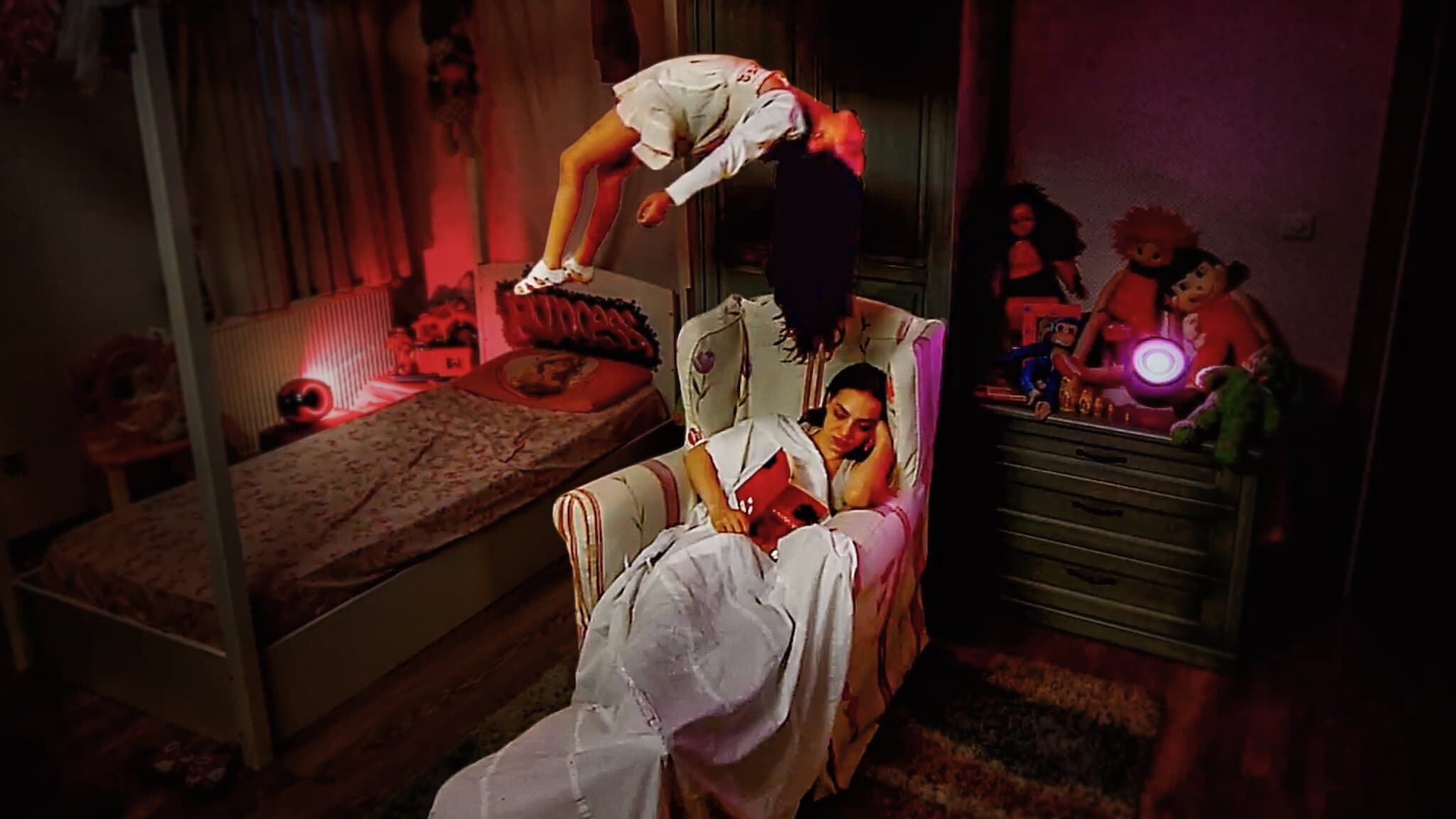
Dabbe: Demon Possession (2012)
Rating: C
Dir: Hasan Karacadag
Star: Nihan Aypolat, Koray Kadiraga, Su Burcu Coskun, Pervin Bagdat
a.k.a. D@bbe: Bir Cin Vakasi
The original subtitle on this installment translates as “A djinn case”, and that’s probably a little more accurate than the possession theme suggested by the official English title. Initially, it seems like that might be the situation, with Ceyda (Avpolat) troubled psychologically, and affected by bouts of sleep-walking. This is why her husband Sinan (Kadiraga) agrees to have cameras installed around their house, in order to record the nightly events. However, it gradually becomes clear that these are not particularly focused on Ceyda, with their young daughter Burcu (Coskun) also experiencing… paranormal activity: yeah, the overall structure is not dissimilar to that movie. These events range from objects moving to her seeing a dark figure in her room.
They persist, even when none of the family is at home, and eventually lead them to bring in a specialist. He discovers a curse has been laid on the family’s home, including the placing of a spell behind a mirror. [If that sounds familiar, this specific occult method was re-cycled in Siccin 3: Forbidden Love] They figure out this could only have been done by someone with free access to the house, although it turns out things are not quite what they initially seem. However, please do not ask me what they actually are, because I have to say, the final twenty minutes of this are not good at explanations. Something about the end of days, although how Ceyda fits into it, is far from clear.
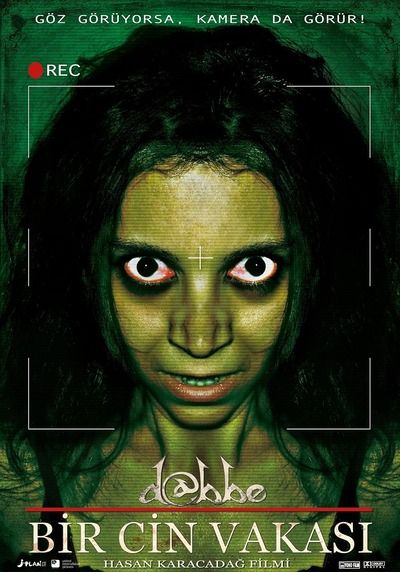 It’s a random grab-bag of good and bad elements, with the same aspect sometimes delivering on both ends of the spectrum. For example, the incidents in Burcu’s bedroom range from the painfully obvious “dangling shit on a piece of string” to the genuinely startling. If you don’t jump when the kids’ playtime is rudely interrupted, may I suggest a medical check-up, because you might already be clinically dead. The same range is true for the performances, and elements of the script as well. There’s a whole sub-plot about a friend of the family going to Derünce village to investigate a case of mass possession. In a film lasting nearly two hours, this side-quest feels like filler.
It’s a random grab-bag of good and bad elements, with the same aspect sometimes delivering on both ends of the spectrum. For example, the incidents in Burcu’s bedroom range from the painfully obvious “dangling shit on a piece of string” to the genuinely startling. If you don’t jump when the kids’ playtime is rudely interrupted, may I suggest a medical check-up, because you might already be clinically dead. The same range is true for the performances, and elements of the script as well. There’s a whole sub-plot about a friend of the family going to Derünce village to investigate a case of mass possession. In a film lasting nearly two hours, this side-quest feels like filler.
It does tie in to the “M” symbol, scrawled repeatedly by Burcu on a whole ream of paper in one of the film’s best scenes. Turns out to be short for “Majnun”, and is used to mark those who are possessed. With a link to Hitler, because why not? This illustrates the film’s main problem: Haracadag seems to be stuffing too many ideas in, regardless of whether or not they fit the scenario he previously established. While some of the individual moments are quite effective, the whole thing becomes a bit of a mess, especially towards the end. A little bit more explanation there would have gone a long way to enlightening foreign viewers at least, who may well be left wondering what the actual fuck.
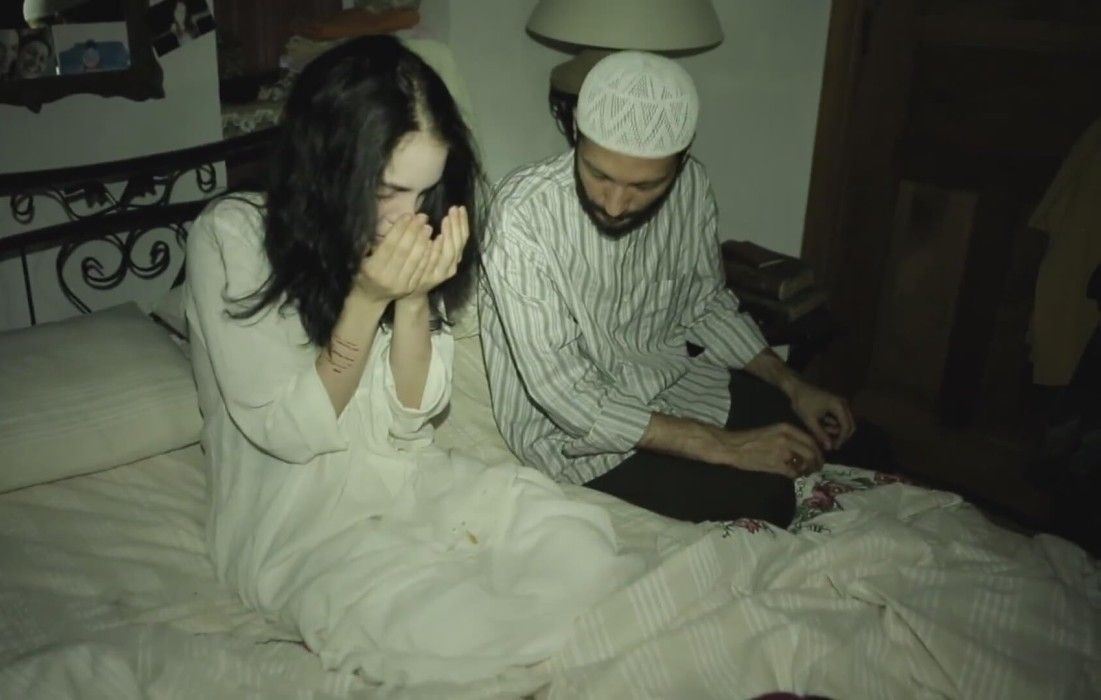
Dabbe: The Possession (2013)
Rating: C+
Dir: Hasan Karacadag
Star: Irmak Örnek, A. Murat Özgen, Cansu Kurgun, Anil Özkan
a.k.a. Dabbe: Cin Çarpmasi
While the fourth entry in the franchise, this was actually the first I watched. I realized it was on Netflix just three days before it left the streaming service, so decided to start there. I think this is fine, because it doesn’t appear particularly to tie in to the previous trilogy. There is a brief discussion of the Internet being a sign of the apocalypse, which was initially a theme of its predecessors. But this lacks any significant technological trappings and instead falls somewhere between The Exorcist and The Blair Witch Project. Now, 134 minutes of found footage is not far from my definition of hell, so the reasonable grade here is an over-achievement.
The main camera wielder is Ebru (Örnek), a psychiatrist who is investigating exorcist Faruk Akat (Özgen). She is very much in full Scully mode, suspecting Faruk of being a charlatan, and believing everything has a rational explanation. To prove him a fake, she requires him to treat a case of her own choosing. This is back in the village where she grew up, and is her old friend Kübra (Kurgun), who has been behaving extremely strangely since stabbing her fiancé to death at their engagement party. Even before they arrive, ominous things begin to happen, and they’re not exactly greeted warmly by the locals either. There’s also the abandoned village of Kibledere nearby, whose presence casts a long shadow over the population.
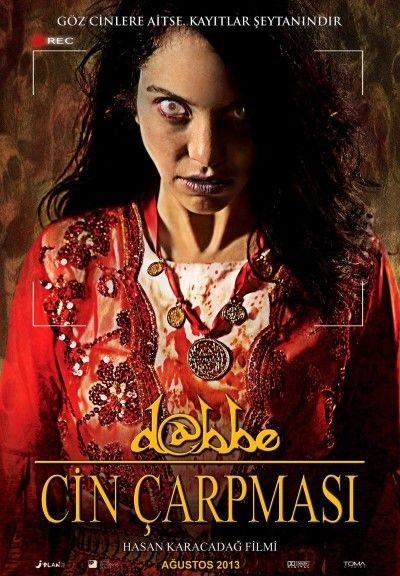 You can probably more or less work out how things proceed from here. Faruk’s efforts to exorcise the djinn which is possessing Kübra, seem initially to work, then she relapses. Ebru clings on to her scepticism, well past the point any reasonable person would be thoroughly convinced. The truth about why Kibledere was almost entirely depopulated is revealed. And, of course, there is an awful lot of shaking of the camera whenever anything interesting or paranormal seems to be happening on screen. However, there are still sufficient creepy moments present, such as the so-called “toilet curse”, which initially seems laughable, but turns out to be much gnarlier. For buried under the toilet, Faruk disinters a slew of occult artifacts and entrails, including an entire cow’s head.
You can probably more or less work out how things proceed from here. Faruk’s efforts to exorcise the djinn which is possessing Kübra, seem initially to work, then she relapses. Ebru clings on to her scepticism, well past the point any reasonable person would be thoroughly convinced. The truth about why Kibledere was almost entirely depopulated is revealed. And, of course, there is an awful lot of shaking of the camera whenever anything interesting or paranormal seems to be happening on screen. However, there are still sufficient creepy moments present, such as the so-called “toilet curse”, which initially seems laughable, but turns out to be much gnarlier. For buried under the toilet, Faruk disinters a slew of occult artifacts and entrails, including an entire cow’s head.
Having been braced for something of an endurance test, I didn’t feel the running time was excessive. The journey from the opening credits to the final, almost obligatory “based on a true story” caption, has a good number of twists and turns, though not all the plot elements feel necessary. For example, much is made of “7175” popping up: when its significance is explained, my reaction was “Is that it?” It’s a long walk for a limited return. In general though, Karacadag does a decent job of managing the pace, and sustaining interest, with additional pieces of the jigsaw popping into place when necessary. You won’t see the whole picture until the very end, and it’s not a pleasant one – especially for Ebru.
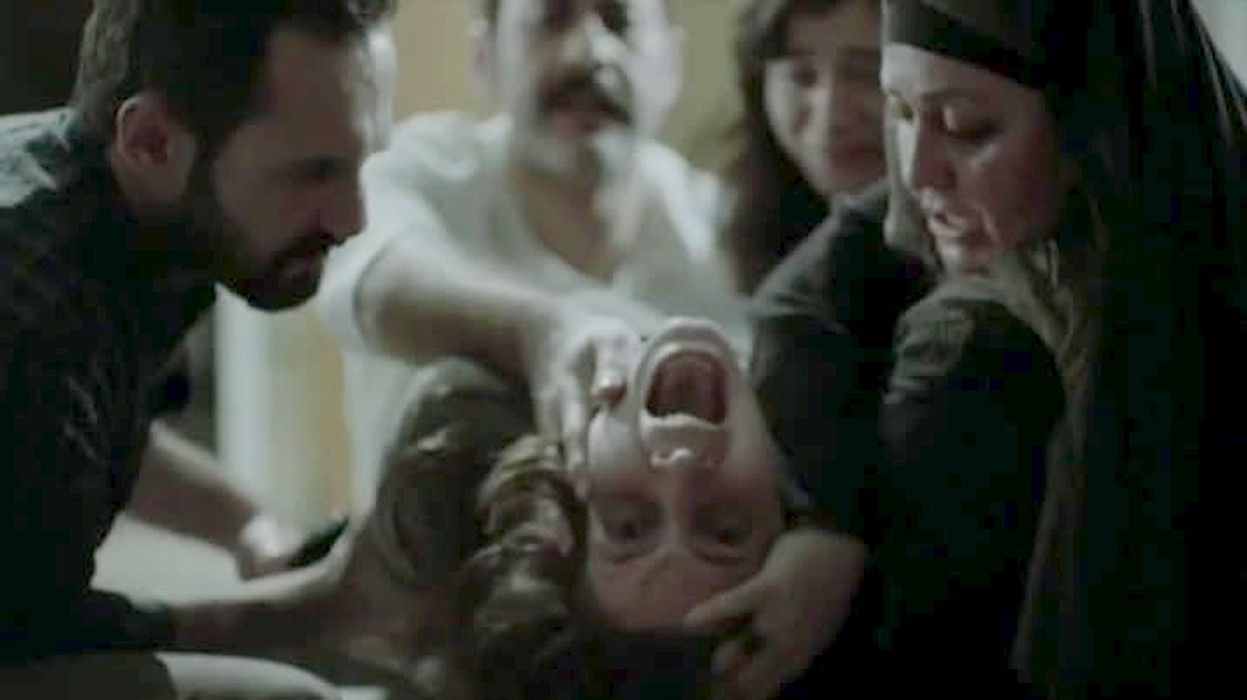
Dabbe 5: Curse of the Jinn (2014)
Rating: C+
Dir: Hasan Karacadag
Star: Nil Günal, Ümit Bülent Dinçer, Özbek Yildiz, Sultan Köroglu Kiliç
a.k.a. Dabbe: Zehr-i Cin
As with the fourth installment, I discovered this on Netflix just before it left. There wasn’t any other source, so I waived my usual rule about watching franchises in order. It’s not a problem since, like Siccin, this franchise largely consists standalone entries. Again, there’s a slight nod to the concept that the Internet is a demonic entity: here, in the shape of a documentary watched by a character on TV. But it’s not a major plot point: this is, by and large, a straightforward possession flick, with elements of a haunted house.
The focus is Dilek (Günal) and her husband Omer (Dinçer). She begins to hear noises and see things around their home, along with disturbing dreams. When I say, “disturbing”, I’m likely underselling them. These are full-blown, Nine Inch Nails music video on crack sequences. Initially, I found the shot on video aesthetic slightly distracting, giving it a cheap feel, like a daytime soap-opera. But it does work particularly well for the nightmares, giving them an additional hallucinatory edge. Not that they really need it. On the other hand, pushing the pedal to the metal quite so quickly, does mean Karacadag is limited in where he can go thereafter – at least visually, there isn’t another gear.
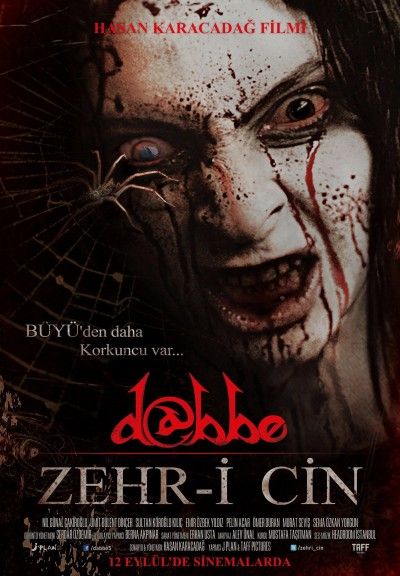 However, the plot develops, with a friend of the family, Harun (Yildiz) knowing someone who has the rather ominous name of Belkis the Exorcist (Kiliç), and can help address the djinns targetting Dilek. Like Dabbe: The Possession, this nods at numerology, with the numbers 7730 – or maybe 7703, I forget – showing up all over the place, though it never becomes as important as it should given the earlier omnipresence. What does become significant is the opening scene, in which a woman gives birth, only for her child immediately to be snatched away for undisclosed, though almost certainly unpleasant, purposes. Turns out, this is part of a particularly nasty conspiracy, which makes Pizzagate look like Oxfam, and which is directly responsible for Dilek’s problems. Though quite why the djinns waited so long before tormenting her is not clear. Djinns gonna djinn, I guess.
However, the plot develops, with a friend of the family, Harun (Yildiz) knowing someone who has the rather ominous name of Belkis the Exorcist (Kiliç), and can help address the djinns targetting Dilek. Like Dabbe: The Possession, this nods at numerology, with the numbers 7730 – or maybe 7703, I forget – showing up all over the place, though it never becomes as important as it should given the earlier omnipresence. What does become significant is the opening scene, in which a woman gives birth, only for her child immediately to be snatched away for undisclosed, though almost certainly unpleasant, purposes. Turns out, this is part of a particularly nasty conspiracy, which makes Pizzagate look like Oxfam, and which is directly responsible for Dilek’s problems. Though quite why the djinns waited so long before tormenting her is not clear. Djinns gonna djinn, I guess.
Again. Karacadag opts for length, this one coming in at one hundred and thirty-three minutes, significantly longer than most horror films. The pacing isn’t consistent, with a few dead spots where the plot seems to be in a holding pattern. But I liked concepts like there being different families of djinn, not all of whom get along. Belkis summons a Christian djinn, to get information on how Dilek can defeat the ones on her back, which requires her to venture into their realm. It’s not a pleasant spot, and I wish the movie had spent more on this element. Instead, it feels like Dilek popped into the supermarket for a pint of milk and a ready meal. The imagery overall was enough to keep me engaged; I do feel the director might be more in love with his work than it deserves.
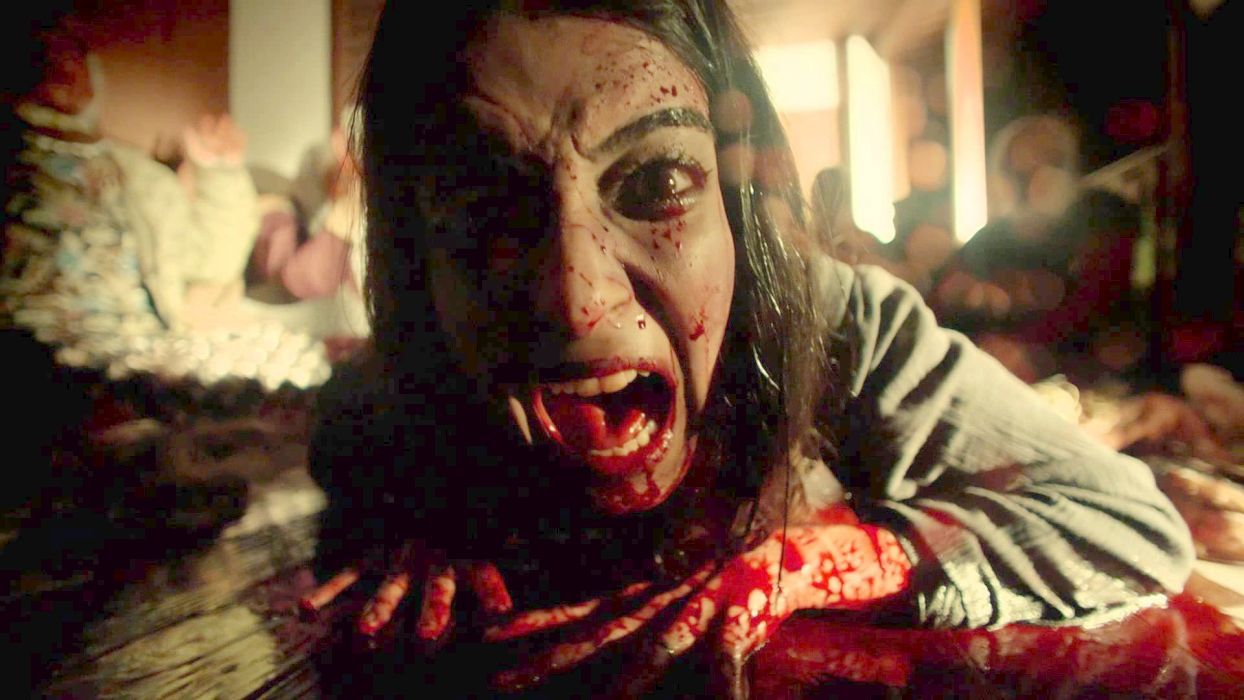
Dabbe 6: The Return (2015)
Rating: C-
Dir: Hasan Karacadag
Star: Sema Simsek, Fehmi Karaarslan, Nilay Gök, Volkan Ünal
a.k.a. Dab6e
If ever a film needed to be, literally, half as long, this is it. The final entry (so far) in the D@bbe franchise comes in at a whopping one hundred and fifty-three minutes, making it a trial of endurance for the viewer, and not purely for the usual, horror-related reasons. If you’re going to be half an hour longer than The Exorcist, there had better be a damn good reason for it. Spoiler: there isn’t here. The tone is set from the beginning with an extended, largely unnecessary prologue depicting in detail an occult ritual, designed to bring down the wrath of a djinn on Mukadder Yaman. It works, and daughter Ayla (Gök) is traumatized by witnessing her mother’s death.
She’s taken care of by her sister, Zeren (Simsek), and Zeren’s husband Hakan (Ünal), but it quickly becomes clear to the audience that something is very wrong with Ayla. This doesn’t stop Karacadag from stretching this section out to about eighty minutes, before the family finally seeks help from psychiatrist Celal Aydilek (Karaarslan). For the second half of the film, the focus switches largely to him, as he investigates Ayla’s case, discovering the specific nature of the djinn responsible and digging into the murky family history of the Yaman clan. This culminates in a ritual that’s supposed to repossess Ayla, and transfer the demon into someone who’s basically a djinn disposal unit. Except that might not be the best idea.
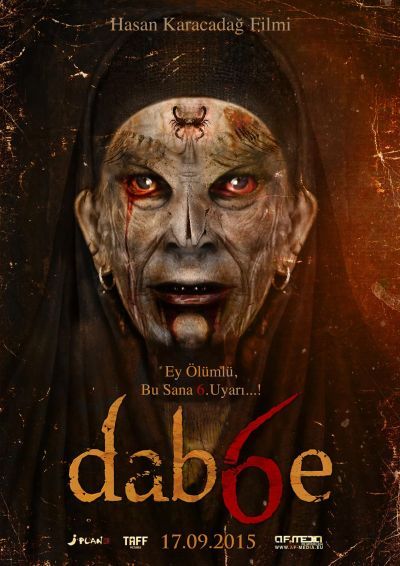 I do think this is the best-looking of the franchise, largely avoiding the “shot on video” feel of the first entries, except when it goes all found-footage for extended periods in the second half. You will certainly get a lot of opportunity to admire it, because it feels like every point gets made in about three different ways. Once you’ve experienced one of Ayla’s unsettling hallucinations from the inside, you get the idea, but that doesn’t stop the director from giving you more of them. Then Hakan’s. And Zeren’s. Whole subplots could be hacked out, such as the husband’s infidelity, which serves little purpose, except allowing the djinn to demonstrate it knows things it shouldn’t. Sidenote: Turkish wives seem very tolerant.
I do think this is the best-looking of the franchise, largely avoiding the “shot on video” feel of the first entries, except when it goes all found-footage for extended periods in the second half. You will certainly get a lot of opportunity to admire it, because it feels like every point gets made in about three different ways. Once you’ve experienced one of Ayla’s unsettling hallucinations from the inside, you get the idea, but that doesn’t stop the director from giving you more of them. Then Hakan’s. And Zeren’s. Whole subplots could be hacked out, such as the husband’s infidelity, which serves little purpose, except allowing the djinn to demonstrate it knows things it shouldn’t. Sidenote: Turkish wives seem very tolerant.
Suspect I probably hit the cinematic wall not long after Avdilek showed up, not least because the actor’s performance is often unconvincing. Part of that is scripting, since his actions seem largely in violation of all psychiatrist protocol. I was only rarely convinced that he believed in djinn, a key component of the character. Interest proved hard to sustain in the second half, and this felt like it was trying to imitate the Siccin franchise with its emphasis on black magic, rather then going its own way. Some of the effects are quite convincing, and it also gets raw and bloody at times, perhaps more so than any of the previous entries. It almost feels like two films glued together, and might have been better as Dabbe 6.1 and 6.2.
